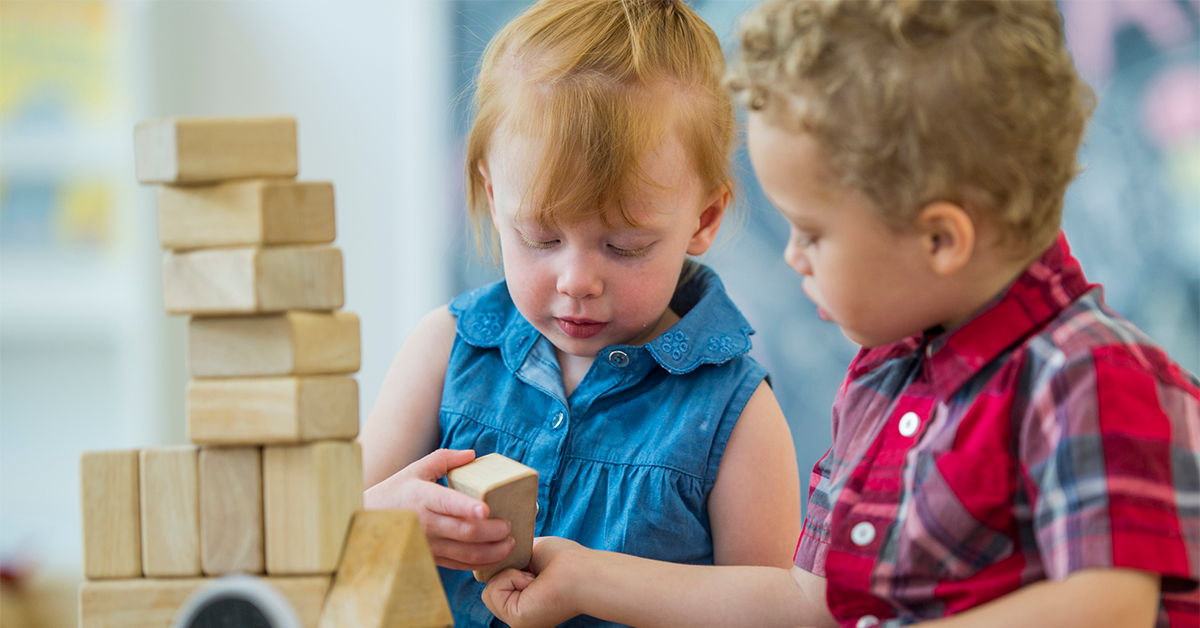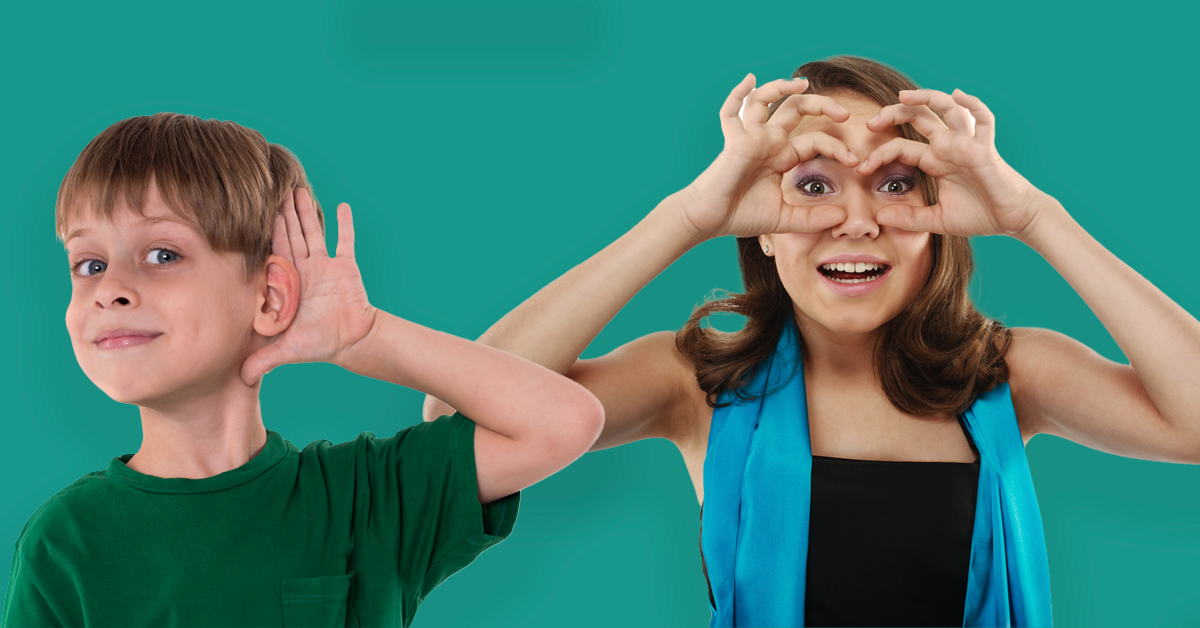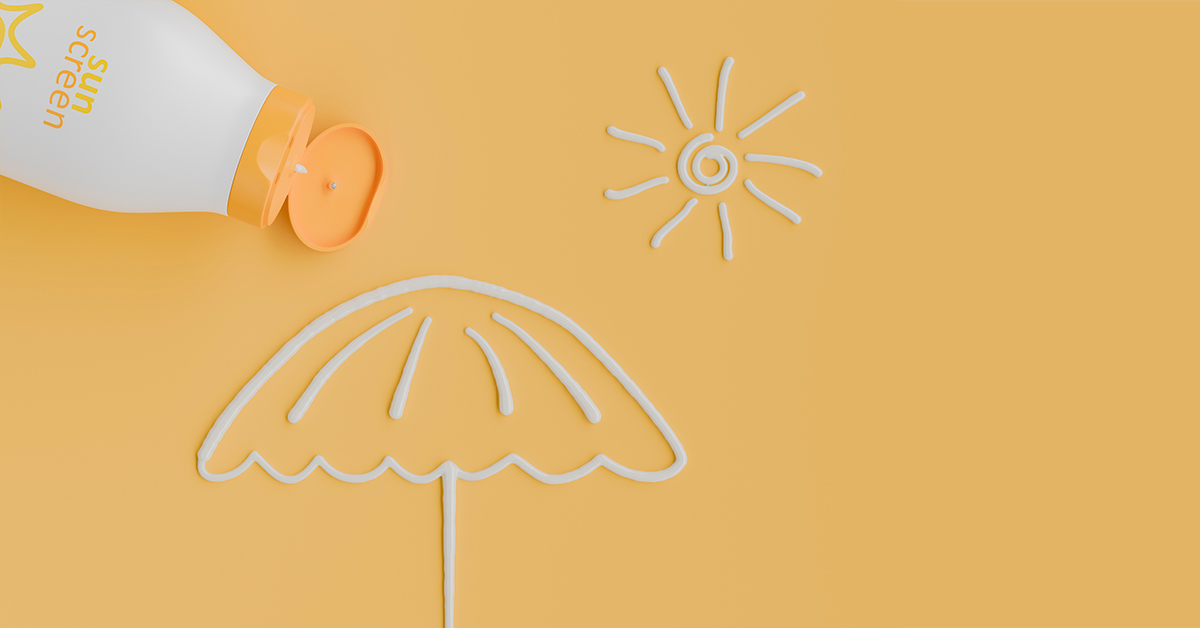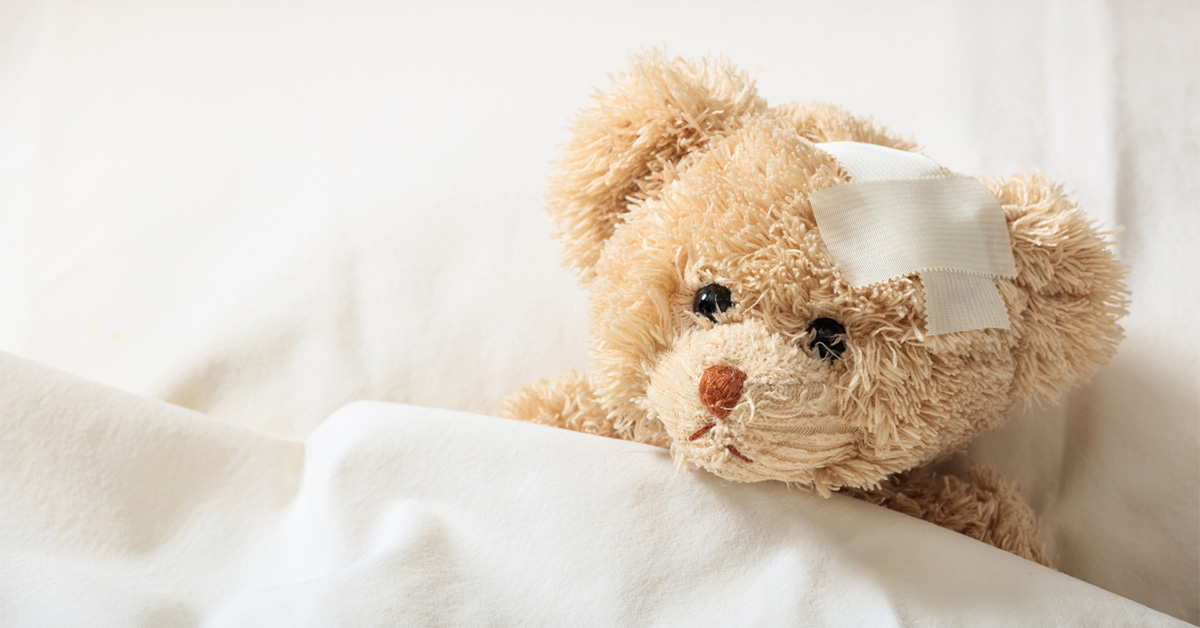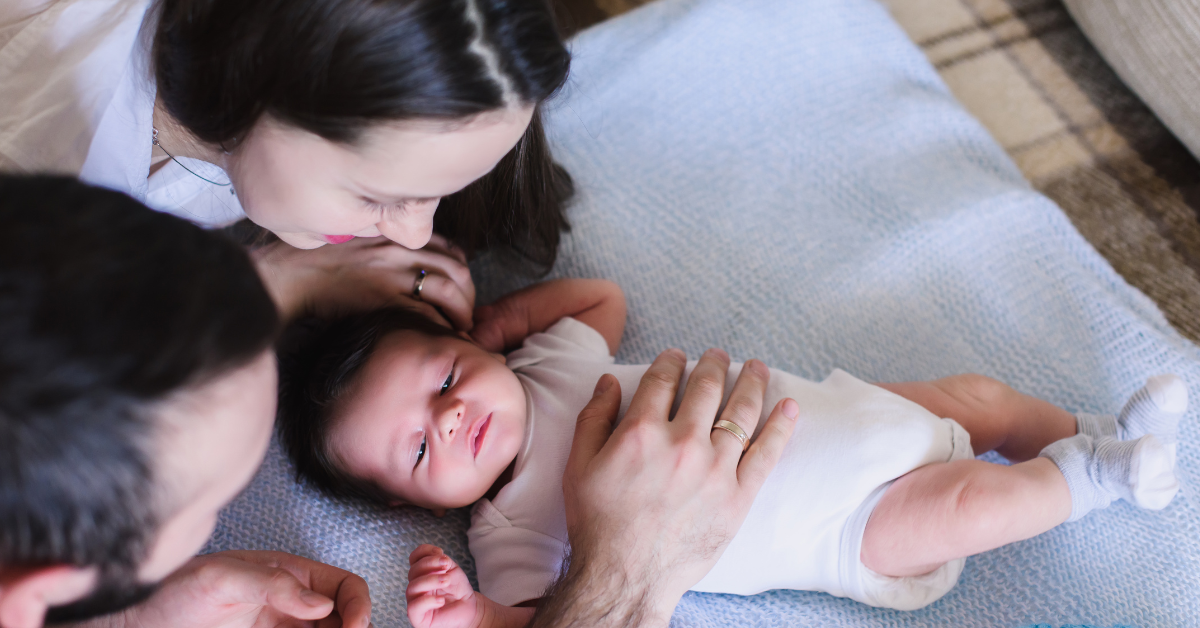Watching your little one transform from a curious toddler to a confident, chatty explorer is quite an adventure. The toddler years (12-48 months) are a whirlwind of growth, filled with exciting milestones and new challenges. Witnessing these changes firsthand is an incredible journey.
As your child transitions from babyhood to toddlerhood, you’ll witness remarkable changes in their physical, cognitive, language, and social-emotional skills. Explore the developmental milestones you can expect during this exciting phase and play recommendations to support your child’s growth.
12-18 months
- Physical: Walks independently, climbs stairs with assistance, kicks a ball, runs with arms outstretched.
- Cognitive: Opens and closes containers, solves simple puzzles, completes simple tasks (putting shapes in holes, stacking blocks), scribbles with crayons, enjoys books and songs, points to get attention of others.
- Language: Says 10-20 words, combines words to make simple phrases (more milk, go potty), points to objects to indicate their wants, says “no” and shakes head.
- Social-Emotional: Shows signs of independence (dressing themselves, feeding themselves), shows interest in other children, expresses basic emotions (happiness, sadness, anger).
Play recommendations
- Push and pull toys: Introduce larger ride-on toys or wagons for enhanced exploration.
- Shape sorters: Provide shape sorters or nesting cups to challenge problem-solving skills.
- Pretend play toys: Offer toy dishes, phones, or stuffed animals to encourage imaginative play.
- Board books with simple stories: Read interactive board books that involve actions like turning pages or naming objects.
- Sing-alongs and action songs: Continue singing songs and incorporate simple movements for gross motor skill development.
18-24 months
- Physical: Walks confidently, climbs stairs with assistance, kicks a ball, runs with arms outstretched.
- Cognitive: Completes more complex puzzles, understands object permanence (objects still exist even when hidden), begins to understand cause and effect relationships.
- Language: Says 50-100 words, uses two-word sentences, understands simple questions (What’s that? Where’s the ball?), points to things or pictures in a book when named, follows simple instructions.
- Social-Emotional: Shows more independence, becomes more assertive, expresses feelings (anger, frustration, jealousy), may have tantrums, begins to understand and manage emotions, shows empathy for others, begins to play with other children.
Play recommendations
- Sensory bins: Create a safe sensory bin filled with textured items like beans, crinkly paper, or colorful scoops for exploration.
- Stacking cups or blocks: Introduce simple stacking toys to encourage hand-eye coordination and problem-solving skills.
- Peek-a-boo: Hide familiar objects and have your child find them. Play variations like hiding yourself behind a blanket or peeking around a corner.
- Cause and effect toys: Offer toys with buttons or levers that activate sounds or lights, encouraging your child to understand cause and effect.
- Interactive games: Play games like patty-cake or “Itsy Bitsy Spider” to encourage social interaction and language development.
25-36 months
- Physical: Walks up and down stairs without assistance, pedals a tricycle, jumps in place, throws a ball overhand.
- Cognitive: Counts objects up to 10, recognizes colors and shapes, understands basic concepts (big/small, tall/short, heavy/light), uses imagination to create stories or play.
- Language: Uses three-word sentences, tells simple stories, understands more complex instructions, speaks clearly enough for strangers to understand, asks “why,” “where,” “what,” “when,” and “how” questions.
- Social-Emotional: Experiences more complex emotions (jealousy, guilt, shame), may become possessive of belongings, plays cooperatively with other children, understands basic social rules (taking turns, sharing), enjoys routine.
Play recommendations
- Simple cause and effect toys: Introduce toys that make sounds when pressed or shaken to promote understanding of cause and effect.
- Interactive games: Play games like hide-and-seek, Simon Says, or charades to encourage social interaction and problem-solving skills.
- Pretend play scenarios: Set up pretend play scenarios (a grocery store, a doctor’s office) to foster creativity and imagination.
- Art activities: Provide crayons, markers, paint, and paper for your child to explore their artistic abilities.
- Outdoor play: Encourage outdoor play to promote physical activity and social interaction.
37-48 months
- Physical: Runs easily, jumps over objects, climbs ladders, kicks a ball with more control.
- Cognitive: Draws more complex shapes (squares, triangles), copies letters and numbers, dresses and undresses with some assistance, cuts paper with scissors, begins to understand time.
- Language: Engages in conversations, tells simple stories, understands more complex instructions, knows some basic rules of grammar and uses words correctly, sings a song or says a rhythm from memory.
- Social-Emotional: Shows empathy for others, cooperates with adults, can share toys and take turns, negotiates solutions to conflicts, more creative with make-believe, confuses what’s real and what’s make-believe.
Play recommendations
- Board games: Introduce simple board games with easy-to-follow rules to encourage social interaction and problem-solving skills.
- Construction toys: Provide building blocks or Lego bricks to challenge your child’s problem-solving and creativity.
- Outdoor activities: Explore nature parks, playgrounds, and other outdoor spaces to encourage physical activity and social interaction.
- Reading and storytelling: Read books together and encourage your child to tell their own stories.
- Music and dance: Introduce your child to music and dancing to promote rhythm, coordination, and self-expression.
The toddler years are a wild ride filled with laughter, love, and a whole lot of mess! By understanding your child’s development and providing a supportive environment, you’ll help them navigate this exciting phase with confidence. So, buckle up, embrace the chaos, and enjoy the incredible journey of toddlerhood.
If you have any concerns about your child’s development, be sure to talk to your provider. Call Welia Health Welia Health at 320.679.1313 or request an appointment online at any time. We also encourage you to ask questions during your child’s regular well-child visits.


